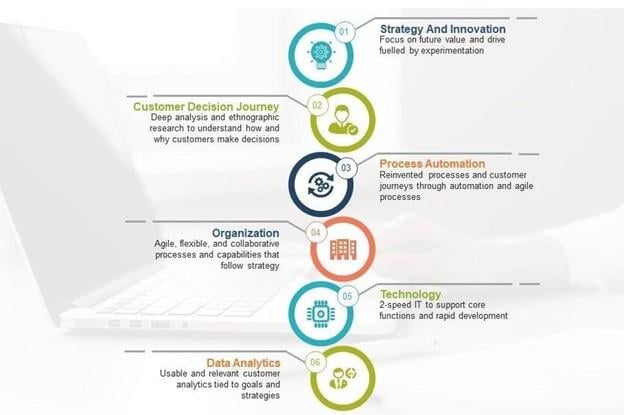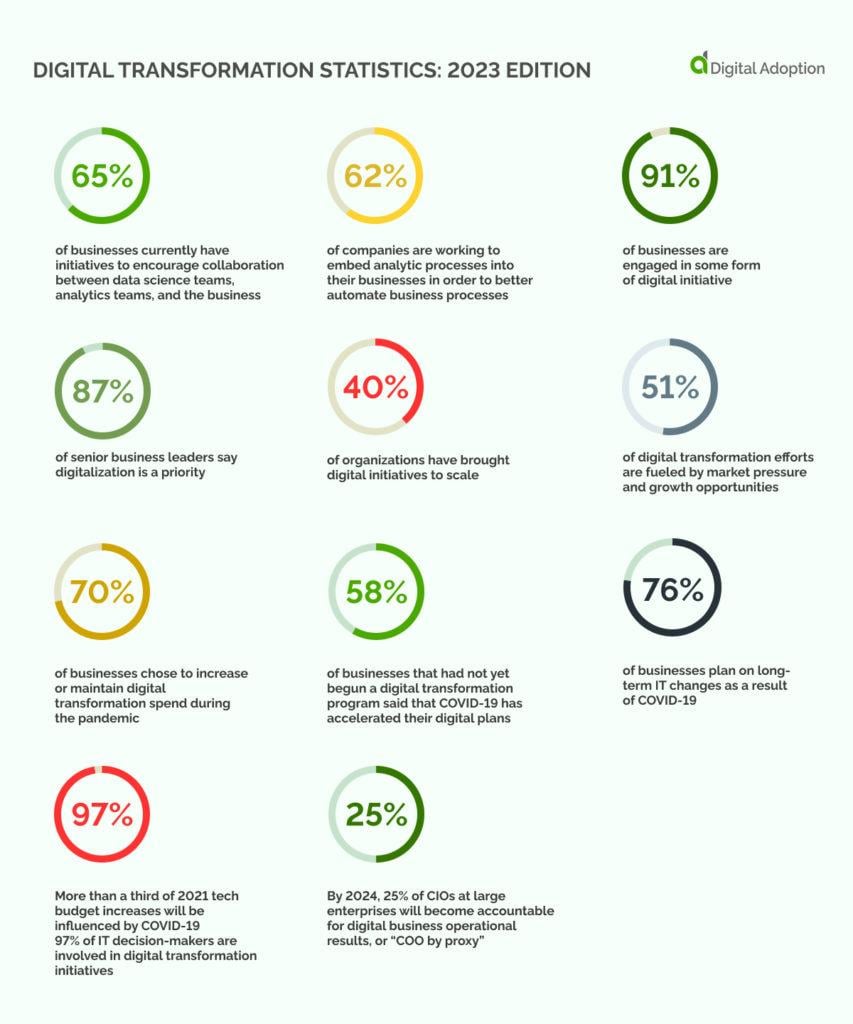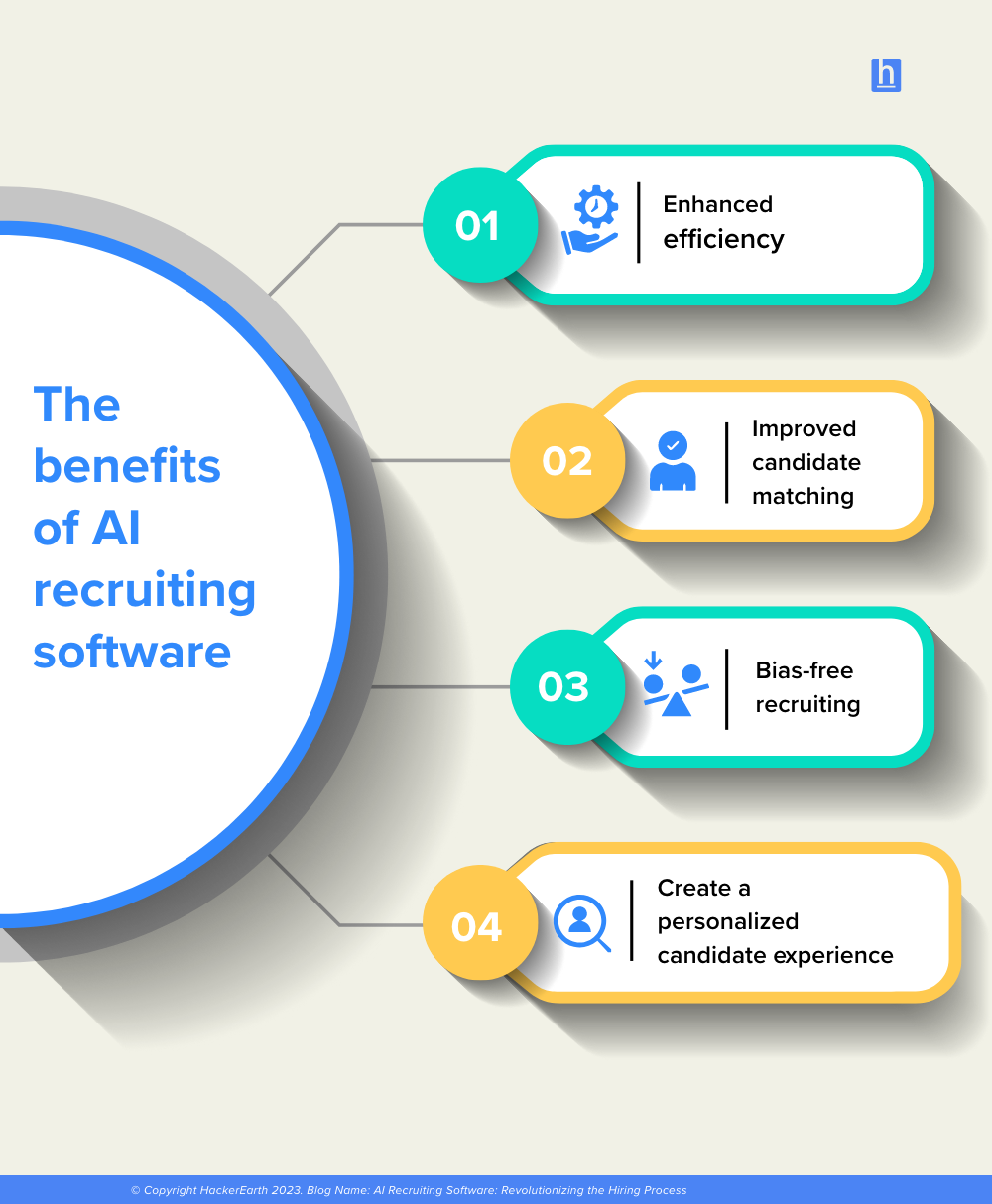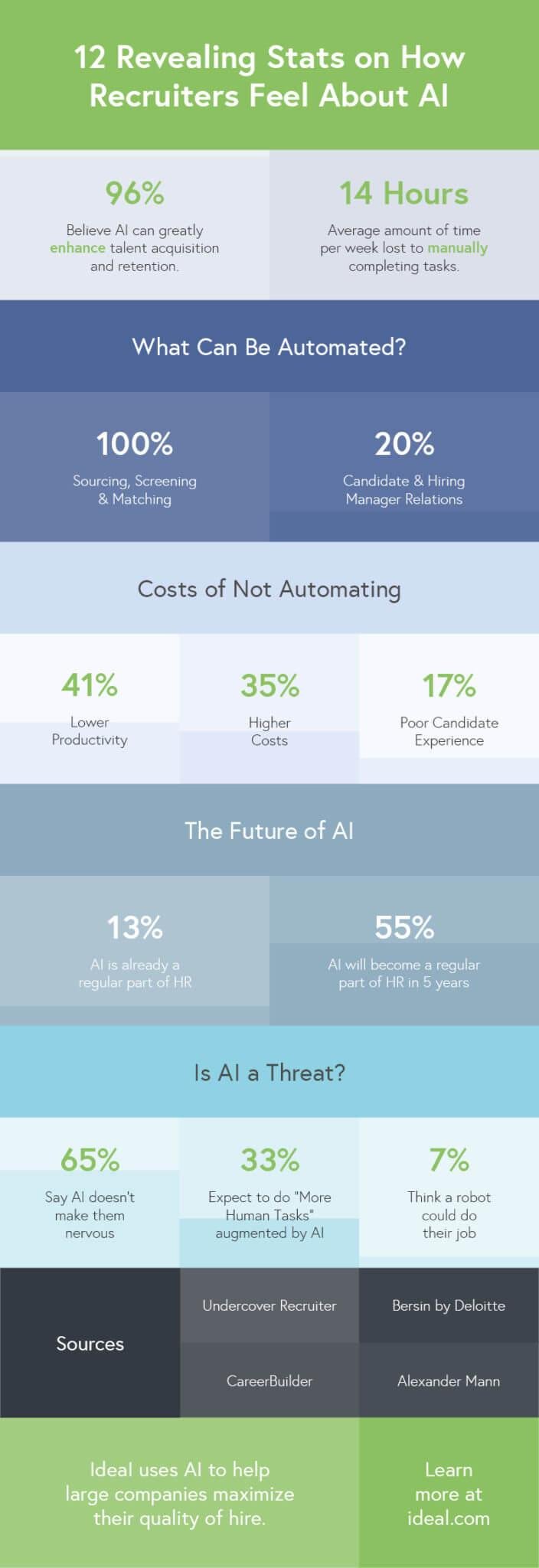As technology continues to advance and artificial intelligence becomes more widely adopted, companies must adapt to the evolving needs of the world. Embracing digital transformation is one of the key approaches employed to achieve this objective.
What is digital transformation?
Digital transformation refers to the process of incorporating digital technologies across all aspects of a company's operations, resulting in a fundamental shift in how the organization functions and creates customer value. It involves leveraging digital tools, platforms, and data to change how the company operates, interacts with customers, delivers products or services, and creates value.

Your Complete Guide to Achieving Digital Transformation. Source: SweetProcess.
Digital transformation encompasses a wide range of activities, such as adopting cloud computing, implementing data analytics, automating processes, embracing artificial intelligence, improving customer experiences through digital channels, and fostering a culture of innovation and agility. The goal is to enhance efficiency, competitiveness, and overall performance by leveraging the power of digital technology in every facet of the organization.

Digital Transformation Statistics and Digital Skills [2022-2023]. Source: Digital Adoption.
As companies embrace digital technologies and seek to leverage their potential, they must also ensure they have the right individuals in key positions who possess the necessary expertise, vision, and leadership skills to drive digital transformation initiatives.
One of the key reasons most companies mention for lack of success in their digital transformations is not having right team with the resources needed to make it happen as Harry Robinson, senior expert who’s helped companies with their digital transformation processes can atest, “During the early stages, the leadership team doesn’t address the skills in their organization. They don’t have the capabilities to drive their transformation, or the key capabilities sit with people who have other day jobs, and they don’t get freed up to be able to work on the transformation.”
In this blog post, we will discuss the essential roles and executives that should be in place within businesses to effectively navigate and execute digital transformation initiatives.
10 Key Digital Transformation Roles:
Organizations often appoint a CDO to lead their digital transformation. The CDO's primary responsibility is to drive growth and strategic planning by leveraging digital tools, platforms, technologies, services, and processes. They focus on creating value through innovative digital solutions, oversee the integration of digital technologies, identify new opportunities, and drive innovation throughout the organization.
Chief Information Officer (CIO)
The CIO plays a critical role in implementing the technological infrastructure required for digital transformation. They are responsible for managing IT systems, data security, and ensuring that the organization has the necessary digital tools and platforms to support transformation initiatives.
Chief Technology Officer (CTO)
CTOs are hired to oversee the management of the organization's physical and personnel technology infrastructure. This includes tasks such as technology deployment, network and system management, integration testing, and the development of technical operations personnel.
As a Product Manager in the context of digital transformation, responsibilities include managing the product roadmap and proposing new features and optimizations aligned with transformation goals. This role involves comprehensive project management from conceptual design to marketing output, understanding and managing the supply chain, and effectively managing budget plans. Product Managers also nurture cross-collaboration with other departments, conduct project and market research, and stay updated with the market to identify opportunities for innovation and implement them in the digital transformation process.
Data Analysts perform analytics and maintenance on large databases. They gather, analyze, and interpret data to derive insights that drive strategic decision-making, process optimization, and personalized customer experiences. Responsibilities also include planning, designing, and developing dashboards, as well as ongoing reporting and segmentation strategies.
As businesses undergo digital transformations, Digital Project Managers play a crucial role in driving the successful implementation of digital initiatives. They are responsible for overseeing and managing digital projects that facilitate the organization's transition to digital channels. Digital Project Managers play a pivotal role in developing and executing project plans, coordinating cross-functional teams, and ensuring the effective utilization of digital platforms and tools. Their responsibilities encompass enhancing brand visibility, driving customer engagement, and optimizing digital processes to support the organization's digital transformation goals.
UX designers focus on improving the overall user experience of digital products and services. They collaborate with cross-functional teams to create intuitive and engaging digital interfaces that enhance customer satisfaction and drive user adoption, so their presence while being in the process of digital transformation is essential.
Sales Representatives / Business Developers
Sales representatives play a crucial role in digital transformations by educating customers about the benefits of digital solutions and driving their adoption. They gather valuable customer feedback, enabling continuous improvement of digital offerings. Additionally, sales reps provide market insights and contribute to revenue growth through effective sales processes, upselling, and cross-selling opportunities during the transformation journey.
Software engineers contribute their expertise in coding, application development, system integration, and software architecture to build the digital platforms, applications, and systems that enable organizations to undergo successful digital transformation. Their skills and knowledge are valuable in implementing new technologies, optimizing processes, and ensuring the smooth functioning of digital initiatives.
As part of digital transformation, CRM Managers play a crucial role in implementing retention marketing tactics to increase customer purchases and value. They analyze campaign data to provide performance insights and suggest improvements. CRM Managers also support strategic planning, budget decisions, optimize email communication, and monitor competitor campaigns to inform future strategies. Their efforts contribute to the success of digital transformation initiatives.
BONUS
ECommerce
If you are a retailer that wants to move to ecommerce, then you might need to add these roles to your digital transformation team, besides the above mentioned.

Impact of digital transformatino on the eCommerce industry. Source: Appiventiv.
As an Ecommerce Manager in the context of digital transformation, responsibilities include managing online activities, optimizing website performance, conducting market research, analyzing data, overseeing digital marketing channels, and ensuring smooth website operations. By implementing an ecommerce strategy aligned with transformation objectives, Ecommerce Managers drive sales, improve user experience, and support the overall digital transformation process.
PPC Managers play a vital role in driving digital transformations as they leverage paid search strategies to achieve transformation goals. By developing effective PPC campaigns across multiple platforms, conducting keyword and audience research, and optimizing performance, PPC Managers contribute to improving online visibility, driving targeted traffic, and maximizing return on advertising spend. Their ability to stay updated with PPC trends and techniques enables them to adapt strategies and capitalize on emerging opportunities, supporting the overall success of digital transformations.
SEO Managers are instrumental in digital transformations as they oversee the implementation of SEO strategies across content, design, social media, PPC, and other marketing activities. By optimizing website elements and enhancing search engine rankings, SEO Managers play a vital role in improving online visibility, attracting organic traffic, and driving the success of the organization's digital transformation initiatives.
Digital transformation is a critical process that companies must embrace to stay competitive in today's rapidly evolving business landscape. To achieve successful execution of digital transformation initiatives, organizations need to establish key roles and positions that drive innovation, leverage digital technologies, and foster a customer-centric approach. By having the right individuals in the described positions, businesses can navigate the complexities of digital transformation and unlock the full potential of digital technologies to drive growth, enhance customer experiences, and stay ahead in the digital era.
At Prosperity, we are dedicated to helping brands succeed with their digital transformation efforts, bringing our 20+ years expertise to design digital strategies for top-notch global players. If you need assistance with your digital transformation efforts, get in touch!




